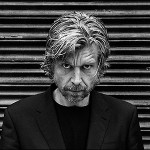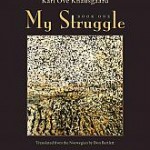When a Nobel Prize judge last year accused American writers of parochialism, a flurry of righteous indignation arose on this side of the Atlantic. One of the judge’s remarks, however, seems indisputable: we do not translate enough foreign literature. Indeed, of all the new literature published in the U.S., less than 1 percent is international. Major publishing houses show an alarming indifference to literature in translation — a sad corollary to the steady diminishment of subtitled fare screened in U.S. movie theaters — and our mainstream book sections choose what to review almost exclusively from these publishers’ lists.
Consider the relative neglect of French writer Dominique Fabre’s The Waitress Was New, surely one of the best novels of 2008. The New York Times did not even think to review it. Why? That deadly combination: translation + small (and nonprofit at that!) press. [It was reviewed in the March/April issue of TBR.]
Against the tide of cultural parochialism, Archipelago Books holds steady. Just over five years old but already invaluable, Archipelago is dedicated, in its own words, “to promoting cross-cultural exchange through international literature in translation.” Among their 2009 releases is Dutch novelist Gerbrand Bakker’s The Twin, a quietly gripping and unexpectedly humorous story of a man’s struggle to cope with the death of his twin brother. And in August, Archipelago released marvelous, idiosyncratic books by two mainstays from their catalog: Breyten Breytenbach and the recently deceased Mahmoud Darwish.
Composed of a series of reflections in a poet’s craft and vocation, Breytenbach’s Intimate Stranger: A Writing Book might be thought of as a down-to-earth cousin of Rilke’s Letters To A Young Poet. Poet, novelist, essayist, and painter, Breytenbach writes in both Afrikaans and English (Intimate Stranger was written in English). He was born in South Africa, but in the early 1960s he moved to France, where he became a vociferous critic of apartheid. In 1975 he visited his native country and was promptly arrested (officially for having married a Vietnamese woman — interracial marriage was illegal at the time). He remained a prisoner for the next seven years. Currently, he divides his time among New York, France, and Africa.
In the essays that comprise Intimate Stranger Breytenbach argues for the centrality of poetic experience to civilization. “For when you hold a poem to your ear,” he writes, “you hear the deep-sound, the movements we are part of, conveying not so much a literal meaning as an existential sense. It constitutes the spinal chord of remembering.”
Writing to an imaginary student, Breytenbach sprinkles his text with quotations from and references to an inspiring range of writers, artists, and thinkers, from Yeats, Kafka, Yang Liang, El Greco, and Charles Olson to Karen Blixen, Stanley Kunitz, Czeslaw Milosz, David Hockney, and Dogen. While providing a fair amount of aesthetic advice, Breytenbach insists that writing is “not an art form, it is a life discipline.”
Above all, for Breytenbach, one’s art serves as a record of one’s ethical response to and engagement with the world. He insists upon poetry’s affective power. For him writing is not a matter of therapy or healing (he has little patience for psychoanalytical approaches to art); rather it is a matter of devoting oneself to a process in order to create not just poetry but life itself:
The act of creativity is the beginning of unleashing metamorphosis, of putting something out there, of starting a process. We become aware of the implications of tangling with matter, of engaging others. In the “making of things” (stories, poems) we shape identities, we forge links between aesthetics and ethics, we learn about the importance of an environment within which rhythms and resonance can take on meaning, we begin to understand about embellishing the existent, we reach out to the supposed non-existent, we bring new light to known objects.
Was there a writer of our time more committed to forging links between aesthetics and ethics than the Palestine poet Mahmoud Darwish? World literature lost one of its most inspiring figures this year when Darwish died of complications from open-heart surgery in Houston. (Earlier this year, Archipelago published Voice Over, Breytenbach’s tribute to Darwish.) Darwish was born in Palestine’s Galilee in 1941. When he was seven, Darwish and his family were forced by Israeli forces to move to Lebanon, an experience that would mark virtually all of his poetry. His family returned, but their village had been destroyed.
In his last years he repeated his long-held desire to be buried in Galilee, but the Israeli government refused his request. In terms of security alone, this refusal is perhaps understandable, for no poet in the world could match Darwish when it came to the size and devotion of his audience; in the Arab world, the audience for his readings could have filled football stadiums.
A River Dies of Thirst is a fascinating document. Rarely have the personal and the political been so plainly intertwined as in Darwish’s poetry, and this book is no exception. Drawn from journal entries containing prose reflections as well as poems — both drafts and final versions, and not always easy to distinguish — A River Dies of Thirst movingly conveys Darwish’s sense of impending death.
In “The rest of a life,” for instance, the poet imagines how he would choose to spend his last evening. Several pages, meanwhile, concern the struggle to hold on to hope amidst so much sadness and bitter disappointment. The speaker of “I did not dream” vows, “I will make my dreams from my daily bread to avoid disappointment.” The central disappointment, of course, is that of displacement — and Darwish knows there is no foreseeable end to the struggle that defined a life he must soon surrender. Still, he can only move forward in vexed division, as the constant sense of displacement extends even to his relation to self. The poet weaves these ideas together with his favored devices of allegory and dialogue in “I walked on my heart” (quoted in full):
I walked on my heart, as if my heart
were a road, or a pavement, or air
and my heart said: “I have tired of identifying
with things, when space has broken into pieces
and I have tired of your question: ‘Where shall we go
when there’s no land there, and no sky?’
And you obey me. Give me an order
direct me to do what you want”
So I said to my heart: “I have forgotten you since we set off
with you as my reason, and me the one speaking
Rebel against me as much as you can, and run
For there’s nothing behind us except what’s behind.”
Other entries tell of encounters with Naguib Mahfouz, Derek Walcott, and Mark Strand; of the pleasures of routines such as dishwashing; and of the dark routines of life in endless war, where
abnormal life appears to be running its normal course. The Devil still boasts of his long quarrel with God. Individuals, if they wake up alive, can still say ‘Good morning,’ then go off to their normal jobs: burying the dead.
Still, Darwish provides strategies for hopefulness (beta blockers can help!) and, in “If only the young were trees,” he imbues with humor the limitations of human nature:
When a tree becomes a boat and learns to swim. … When it becomes a table it teaches the poet not to be a woodcutter. The tree is forgiveness and vigilance.
Elsewhere, affirmation appears in moments of startling, lucid beauty, as when, after describing a canary, Darwish revitalizes a common metaphor–the lines speak for an occupied populace but could also serve as his own epitaph: “Singing in a cage is possible/and so is happiness.”




